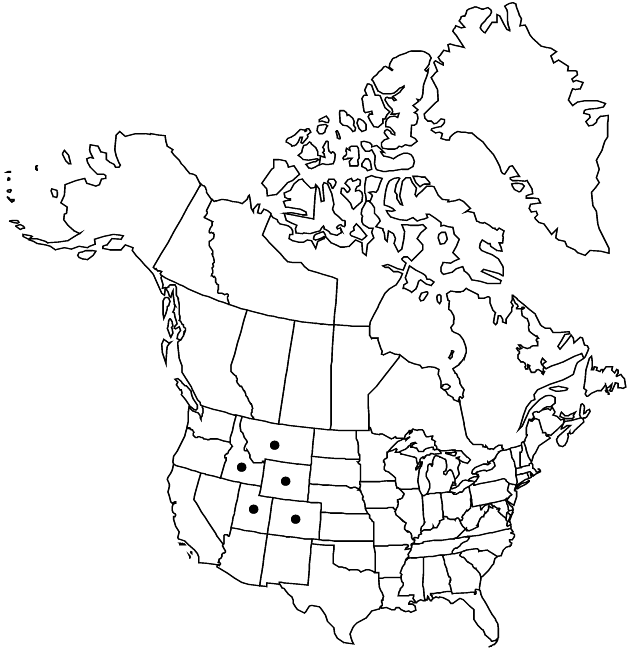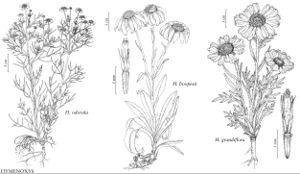Difference between revisions of "Hymenoxys grandiflora"
Madroño 10: 159. 1950.
FNA>Volume Importer |
FNA>Volume Importer |
Revision as of 18:46, 24 September 2019
Perennials, 8–30 cm (polycarpic, often with sparingly branched, woody caudices). Stems 1–10, green throughout to purple-red-tinted proximally or distally to purple-red-tinted throughout, usually unbranched distally, ± hairy. Leaves: blades simple or lobed (lobes 3–15), ± hairy, gland-dotted (basal leaf bases, sparsely, if at all, long-villous-woolly); mid leaves simple or lobed (lobes 3–7, terminal lobes 1–2.5 mm wide). Heads 1–10 per plant, usually borne singly. Peduncles 1–10 cm, ± hairy, tomentose distally near involucres. Involucres hemispheric to subglobose, 15–25 × 18–30 mm. Phyllaries in 2–3 series, subequal; outer 16–24, basally connate 1/5–1/4 their lengths, lanceolate, 9–15 mm, apices acute; inner 16–24+, lanceolate to oblanceolate, 8–12 mm, apices acuminate to acute. Ray florets 15–34(–44); corollas yellow, 16–30 × 4–8 mm. Disc florets 150–400+; corollas 5–6 mm. Cypselae obpyramidal to narrowly obpyramidal, 3.3–3.7 mm; pappi of 5–7 lanceolate, aristate scales 4.5–5.3 mm. 2n = 30.
Phenology: Flowering Jun–Aug.
Habitat: Meadows, often above timberline
Elevation: 2600–4300 m
Distribution

Colo., Idaho, Mont., Utah, Wyo.
Discussion
Selected References
None.
